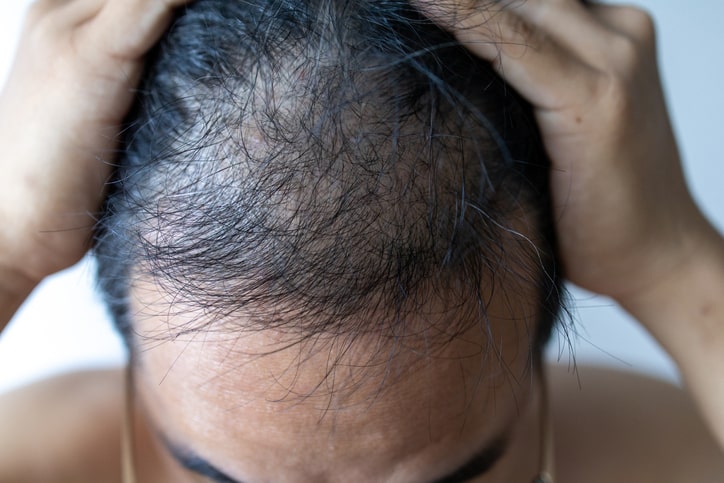Ever wonder why females are usually the victims of their partner’s snoring? Anatomy could be a huge reason why.
Snoring is a highly common problem that affects nearly everybody out there – anyone snores at some point in their lifetime. However, studies have shown that snoring is more common among males than females.
In this article, allow me to explain why men tend to snore more than women, what causes snoring and how to reduce snoring.
What is snoring?
Snoring simply refers to the noisy breathing you make while you are asleep. It tends to worsen as you age.
Snoring once in a while isn't usually a major concern. However, if you snore almost consistently, you not only interfere with the sleep patterns of those around you but disrupt your own sleep quality as well.
Snoring can also be a symptom of an underlying medical condition, such as obstructive sleep apnea1. This is why it is highly recommended that you talk to your doctor if you find yourself snoring quite often or very loudly.
What are the potential causes of snoring?
Snoring in men and women is caused by the vibration of soft tissue in your upper airway triggered by breathing during sleep. Snoring typically occurs when the natural flow of air via your mouth and nose is restricted. Many things can potentially interfere with air circulation, such as:
Blocked nasal airways
Studies have revealed that some individuals only snore during a sinus infection or an allergy season. Problems with your nostrils, including deviated septum or even nasal polyps, can all potentially block your airways, resulting in snoring.
Heavy or bulky throat tissue
If you are currently struggling with weight-related problems, chances are high that you'll suffer from snoring issues as well.
Poor muscle tone in your tongue and threat
Your tongue and throat muscles can be excessively relaxed, allowing them to collapse into your airway.
Your sleeping position
It has been proven that sleeping on your back can potentially enhance your chance of snoring.
Long soft palate or uvula
A fairly long uvula or long soft palate can lead to the narrowing of the opening from your nose to the throat. During breathing, this forces them to vibrate and hit against each other, blocking your airway as a result.
Sleep deprivation
If you lack sleep, your throat muscles are likely to relax, leading to snoring problems.
Why is snoring more common among men than women?

Research shows that about 40%2 of adult males are habitual snorers, whereas only 20% of females suffer from snoring.
Why is this so?
Male anatomy
As earlier explained, snoring happens because of vibrations within your airway. The male anatomy generally provides more space for propagating and producing these airway vibrations.
Males usually tend to have somewhat larger airways and their larynxes –which refer to the hollow muscles that allow the passage of air to the lungs– are also found in the neck. This anatomy results in the creation of much bigger space in their throats hence a higher propensity to snore.
When you fall asleep, the muscles found in your pharynx (the space between your mouth and nose) relax whereas your tongue falls back to fill this space. However, the larger the space, the more likely you are to snore!
Also, men's airways are known to change relatively faster compared to women in the transition between sitting up and lying down. This further increases the chances of snoring. Besides, men are also known to have much of their weight on the upper part of their body, which includes the neck, chest, and thorax. This might lead to an increased amount of soft tissue as well as increased fat deposits putting more pressure on the airways, ultimately making snoring a more prevalent problem.
Lifestyle choices
Lifestyle choices such as smoking and alcohol consumption affect snoring. Alcohol intake and smoking are considered snoring risk factors in both men and women, though these effects may play out very differently for both genders.
For example, tobacco smoking has been proven to trigger snoring amongst women, typically because they are fairly more susceptible to airway inflammation and irritation. Contrastingly, men are more likely to snore if they take alcohol regularly, perhaps because alcohol somehow relaxes their airway, which is inevitably more prone to collapse.
Hormones
Scientists also strongly believe that hormones play a vital role. Based on this, it is suggested that certain hormones that are prevalent in women may help lower their chances of snoring. The two primary female hormones (estrogen and progesterone) appear to offer protection against upper airway collapse. What's more, progesterone stimulates breathing by helping dilate women's upper airway muscles, potentially helping prevent or minimize the intensity of snoring in women.
With that said, generally, snoring tends to increase with age regardless of gender. In women, however, menopause carries the greatest snoring risk. Research has proven that women who go for hormone replacement therapy during menopause either don't snore completely or snore less, supporting the belief that female hormones protect against snoring!
What can you do to prevent or manage snoring in Singapore?
There are many ways snoring can be treated, including dental devices, behavioral changes, medications, and nasal devices as well as over-the-counter products. Whereas the other snoring prevention methods may need the intervention of a doctor, behavioral changes are the easiest to incorporate into your life.
These include losing extra weight, working out more regularly, and reducing your alcohol consumption as well as smoking. If you tend to snore more when you sleep on your back, changing your sleep position could also help solve some of your snoring problems. In this regard, sleeping on your side could prove beneficial.
Lastly, if you suspect that your snoring problems are caused by nasal congestion, you'll need to treat this and clear your airway.
The bottom line
Snoring is generally not considered an alarming problem. However, if it is causing lots of disruptions to your sleep, it can make you susceptible to secondary health concerns. Thankfully, there are numerous ways to prevent snoring, and you only need to speak to your doctor in Singapore for relevant assistance.
References
- Stuck, B. A., Dreher, A., Heiser, C., Herzog, M., Kühnel, T., Maurer, J. T., Pistner, H., Sitter, H., Steffen, A., & Verse, T. (2015). Diagnosis and treatment of snoring in adults-S2k Guideline of the German Society of Otorhinolaryngology, Head and Neck Surgery. Sleep & breathing = Schlaf & Atmung, 19(1), 135–148. https://doi.org/10.1007/s11325-014-0979-8
- Yaremchuk K. (2020). Why and When to Treat Snoring. Otolaryngologic clinics of North America, 53(3), 351–365. https://doi.org/10.1016/j.otc.2020.02.011
This article was written and medically reviewed by Dr Ben, M.D on 14/01/21



















